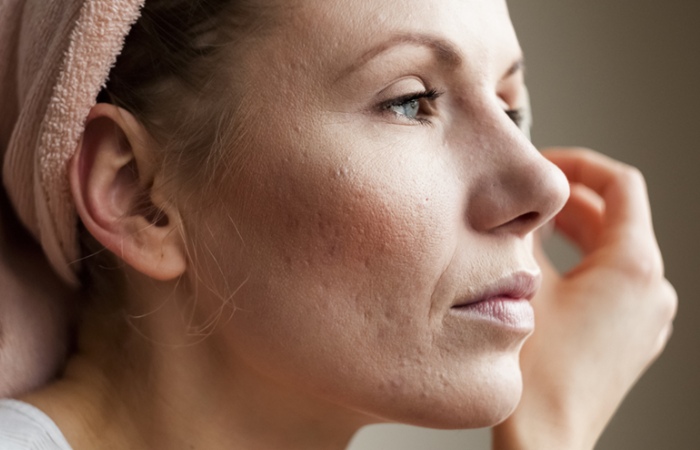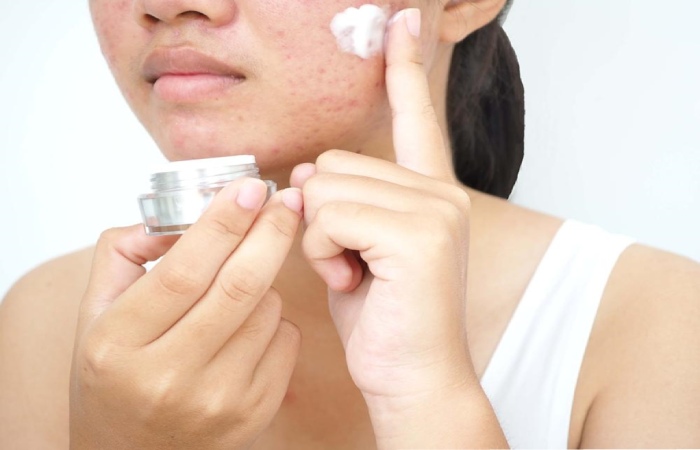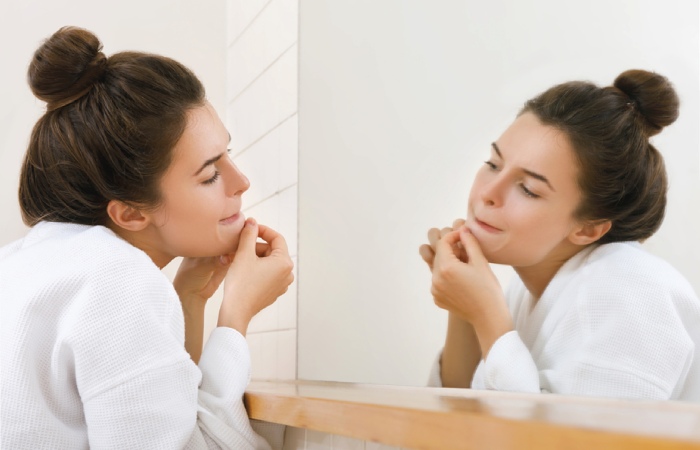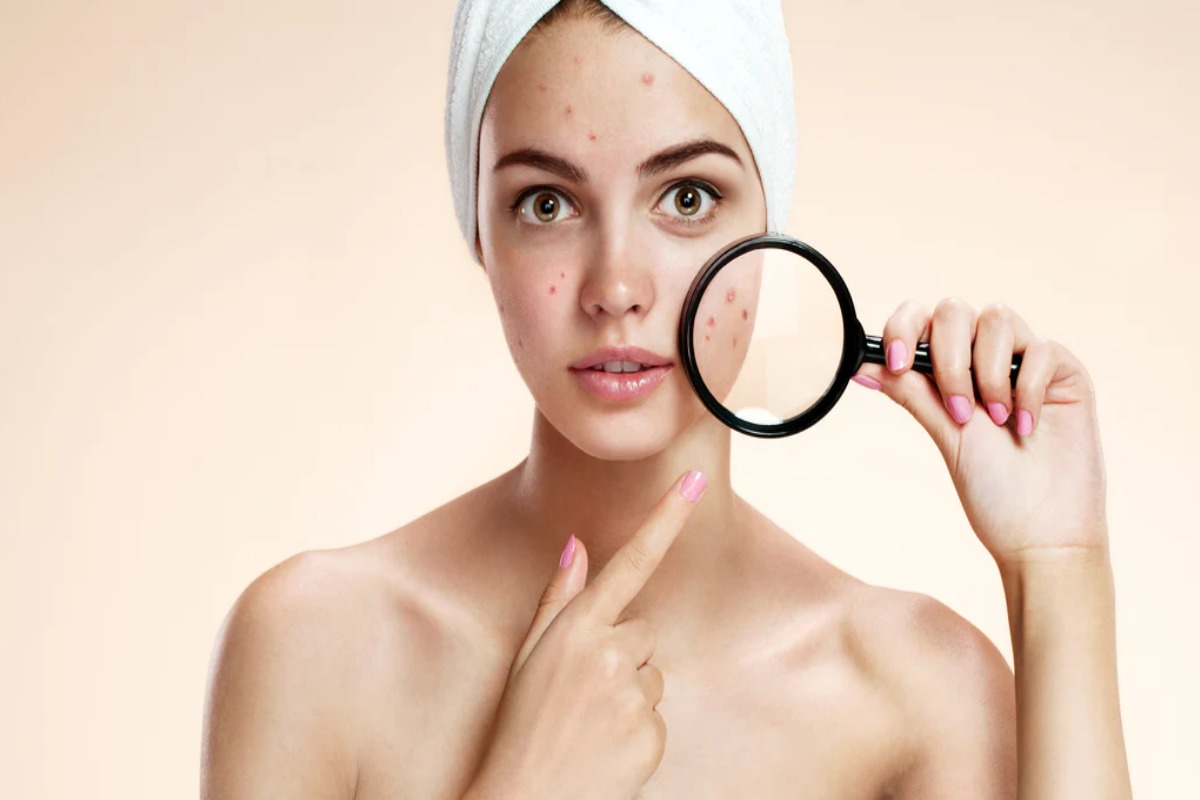Acne is the most common skin condition in the United States, and up to 50 million Americans struggle with it every year. With acne being such a common skin condition, there are also many myths circulating about it. We debunk 11 of the most common acne myths that you shouldn’t believe in.
Table of Contents
“Having acne means that your face is dirty.”
Acne is largely caused by genetic factors, not by how dirty or clean your face is. Plenty of people never wash their faces, yet never develop a blemish, while others wash their face multiple times a day and still struggle with acne. Having acne is no reflection of your personal hygiene or cleanliness and doesn’t mean that you are dirty!
“If you wash your face enough, acne will go away.”
Many people believe that if you strip your skin with harsh cleansers multiple times a day, the blemishes will go away. In most cases, this approach will backfire, irritating your skin and making it worse. You don’t need to wash your face more than twice a day, once in the morning and once at night. If you have dry skin and acne, you might only need to use a gentle face cleanser once a day at night in order to remove dirt and debris.

“Acne only happens to teenagers.”
While many teenagers do get acne because of all the hormonal changes, adults can also get acne. Many people in their twenties, thirties, forties, and beyond struggle with adult-onset acne which can be painful and persistent. Even if you never had a blemish as a teenager, you might find yourself experiencing acne as you get older and your hormones change.
“You’ll grow out of your acne.”
Many teenagers do find that their acne improves as they get older, but that doesn’t mean that you have to just wait for your acne to get better. Getting into a good anti-aging skincare routine and regularly using acne treatments can help to soothe teenage acne. If you’re in your twenties and beyond and still struggling with adult acne, then you will probably not grow out of it and should seek out treatment for your acne.
“Acne only affects people with oily skin.”
While there is some truth to this acne myth — people with oily skin are more likely to get blemishes — it’s not entirely true. Anyone of any skin type can get acne, whether that’s oily skin, dry skin, normal skin, combination skin, or sensitive skin. Some people struggle with both dry skin and acne simultaneously!

“People with acne don’t need to moisturize their faces.”
This acne myth stems from the idea that acne comes from excess sebum. The theory is that using an anti-aging cream makes your face even more greasy and contributes to more acne. However, if you don’t wear a moisturizer, then your face might overproduce more oil in an attempt to compensate for the lack of moisture. If you find that heavy moisturizers clog your pores, then look for a non-comedogenic one that doesn’t contain oil as an ingredient.
“Chocolate, dairy, and greasy foods cause acne.”
Many people have anecdotally claimed that eating certain food groups — usually chocolate, dairy, and/or greasy foods — increases their acne. However, when scientists have studied this, the research has been mixed and inconclusive. At this point, it seems like diet has very little effect on acne and that genetics are still the most important factor in whether or not you have acne blemishes.
“Toothpaste is an effective spot treatment for acne.”
Toothpaste is often promoted as a DIY home remedy for pimples since it contains several compounds that can dry out your skin. However, toothpaste isn’t designed for topical application, and it can be very irritating to the skin. Applying toothpaste can even backfire and cause inflammation and more blemishes. We recommend sticking to a spot treatment that is specifically designed to be applied to your skin.

“Popping pimples will make them heal faster.”
Popping pimples is extremely satisfying, but unfortunately, it can make blemishes slow to heal. That’s because your fingernails often have germs, dirt, and other debris on them that can slow healing and cause infection. Popping pimples can also damage the skin and lead to scarring and hyperpigmentation. If you can’t resist popping pimples, see a dermatologist for professional extractions in a sterile environment.
“Sun exposure can cure acne.”
Many people find that getting a tan temporarily heals their blemishes, which happens because UV exposure can temporarily reduce inflammation in the short term. Unfortunately, cumulative UV damage can seriously hurt your skin over time, increasing your risk of skin cancer and leading to scarring and hyperpigmentation. You’ll be better off treating the underlying causes of your acne than trying to tan it away.
“Acne will go away on its own.”
In most cases, acne will not go away until you treat the underlying causes, so playing the waiting game may not be as effective as you think. Thankfully, there are many affordable over-the-counter remedies that you can try, such as benzoyl peroxide face washes and salicylic acid treatments. If over-the-counter treatments don’t work, a dermatologist can help you figure out a course of prescription treatments that will help to improve your acne.
What are other acne myths that you have heard going around? Were any of these myths news to you, or did you already know that all of these myths had been debunked? Let us know in the comments below!

